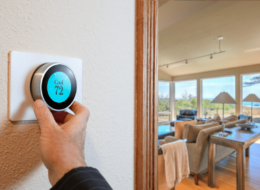Elderly seniors can often find themselves suffering from loneliness and isolation. Pets can be a great remedy, providing companionship and affection for older individuals.
We’ll explore several of the best pets for seniors, based on varying activity levels and care requirements.
How Seniors Benefit from Pets
In a 2019 poll National Poll on Healthy Aging that surveyed adults between 50-80 years old, over half of the participants reported that they owned a pet, with 79% of owners saying that their pet helped reduce their stress and 86% reporting that their pets made them feel loved.
Considering loneliness is a major issue for seniors, with 40% reporting feeling lonely on a regular basis, it’s no surprise that many consider pets as potential companions.
There are numerous ways pets can benefit seniors:
- Pets provide elderly owners with companionship and a sense of purpose.
- Pets can help seniors keep a regular routine, as the animals need feeding and watering each day
- Some pets like dogs can keep a senior active, as dogs need to be walked daily.
- Pets offer socialization and companionship to lonely seniors.
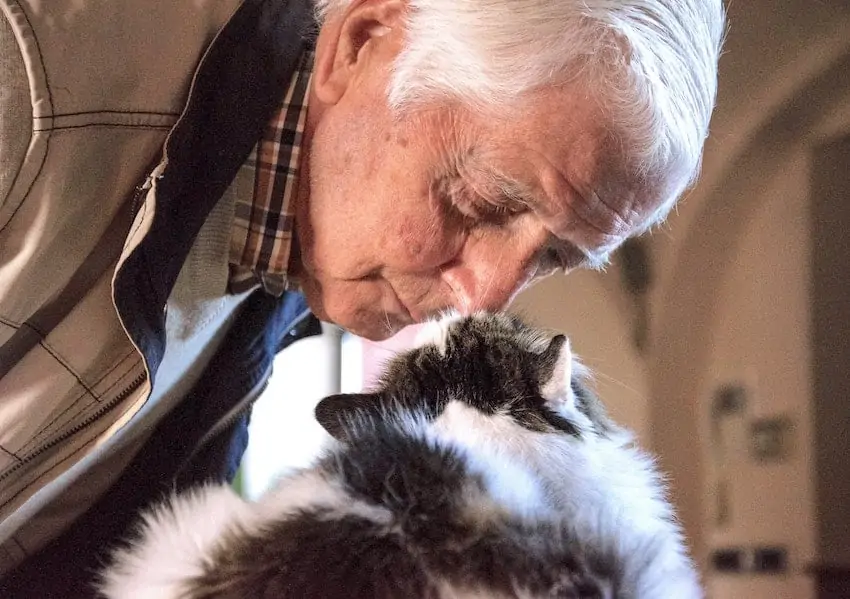
However, in order for a senior to properly benefit from having a pet, it’s essential that the right type of pet is chosen that matches the senior’s abilities.
When choosing a pet for an elderly relative, be sure to consider:
- Mobility. Dogs that require daily walks and exercise are not recommended for those with limited mobility (unless the individual can hire a dog walker). An under-exercised dog will be miserable and destructive, with neither the owner nor the dog ending up happy.
- Finances. Be sure to consider the average cost for each type of pet. While all animals require some basic bedding, food, water, and toys, you’ll also need to consider the cost of veterinary bills and ongoing care, with prices varying depending on the animal.
- Cleaning. Even relatively low-maintenance pets will involve some ongoing cleaning. Guinea pigs and birds need their cages cleaned, cats need their litter box emptied, and fish need their tanks cleaned. Consider the frequency of cleaning required and if the task is something a senior can accomplish alone, or will need help with.
- Lifestyle. Consider what the senior is looking for in a pet. If an individual has an active social life and would just appreciate a bit of extra companionship at home, birds or a cat may be a better fit. If the individual spends a lot of time at home and wants to spend significant time caring and for and interacting with another creature, a dog may be a good pick.
Best Pets for Seniors & The Elderly
Let’s talk about the best pets for seniors! We’ll dive into the care requirements for each pet as well as some of the most popular breeds for each animal type.
1. Cats

Cats can vary in terms of care and attention required, but are generally a great pet choice for seniors due to their independent nature.
Cats are relatively low-maintenance when compared to other pets like dogs, as they only require daily feeding, access to clean water, and access to a litterbox (which should be cleaned daily). Cats don’t need to be let outside or heavily exercised, making them an especially good pet for seniors with limited mobility.
Some cats will live almost entirely independently, expecting little interaction from their owner other than feeding. Other cats may prefer more attention and care, such as petting, cuddling, or playing with toys to keep them entertained.
It’s recommended that seniors consider adopting an adult cat rather than a kitten, as kittens can have more energy and behave a bit wilder than more mellow, chilled-out adult cats.
Some of the most popular breeds of cats for elderly owners include:
- Ragdoll Cats: Require minimal care from the owner as they’re large, easy-going cats who love to take naps
- Birman Cats: Require low-maintenance care and are easy to groom, plus are known for being affectionate and gentle.
- British Shorthair Cats: Their short hair means that they require minimal grooming. They are relatively good-natured and easy-going cats.
2. Birds
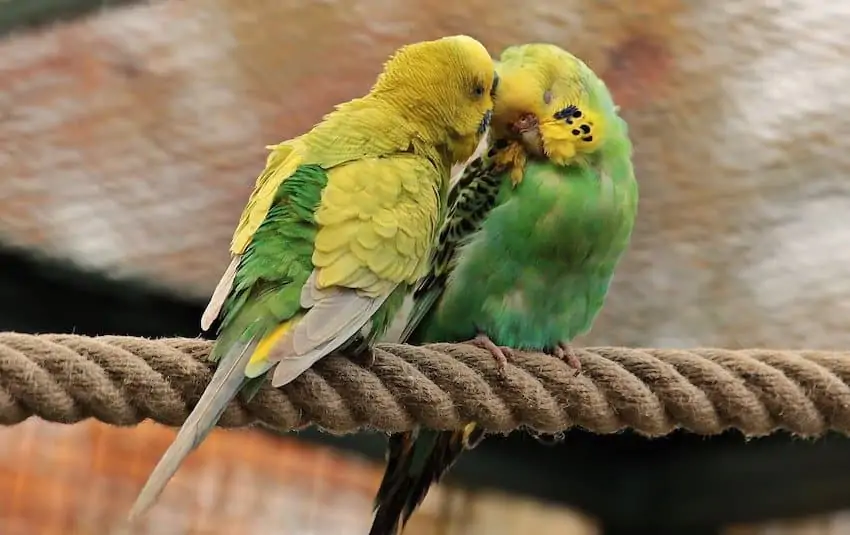
Birds are generally considered low-maintenance pets, requiring little attention. Some birds are more social than others. While birds like parakeets are zebra finches can be sociable, enjoyable birds who don’t require a ton of time, parrots are not recommended for seniors as they require significantly more care and attention. Plus, they have a long lifespan compared to other birds (with many living to be over 50).
Parakeets and zebra finches are great options for beginner bird owners, as they are fairly easy to care for and attractive, making them fun to observe. Birds are social creatures, and it’s recommended to always get parakeets and zebra finches as pairs so that they have their own bird companion in addition to their human company.
Some of the best birds for seniors include:
- Parakeets. Small, chirpy birds that come in bright, beautiful colors and don’t require a lot of care. They can be kept in cages and do not need much attention to thrive, so long as they have a fellow parakeet companion.
- Zebra finches. Small, colorful birds that require a larger-sized cage and should be kept in two-s, three-s, or four-s.
- Cockatiels. Cockatiels are medium-sized, soft birds who enjoy interacting with their owners but require less attention than larger birds like cockatoos and macaws. They can be kept in cages or free range of a room as long as there’s plenty of toys and perches to prevent boredom.
While parakeets and zeba finches live around 2-6 years, cockatiels can live up to 10-14 years, making them more of a commitment.
3. Fish
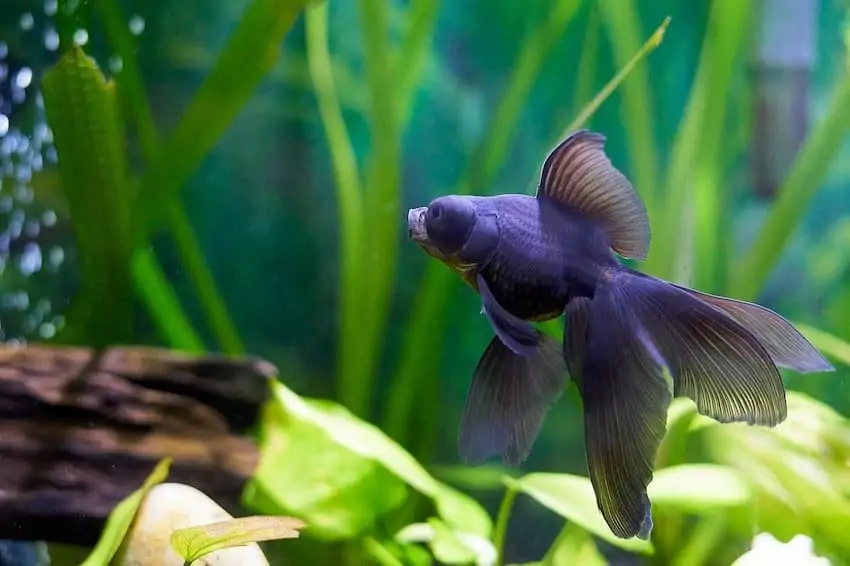
Fish are some of the most low-maintenance pets out there, making them a great choice for less mobile seniors or individuals with dementia who may not be as reliable at providing daily care for an animal.
Fish can live in an aquarium with little interaction from the owner, simply requiring feeding and occasional water changes.
Our favorite fish for seniors include:
- Goldfish. Classic pet fish that don’t require a ton of space (should have 20 gallons per fish).
- Neon Tetras. Small, brightly colored fish with gorgeous streaks of neon blue and red. They like to stay in schools, so should be kept in groups of at least 3-5.
- Betta Fish. These flowy fish come in some gorgeous colors and are relatively easy to keep alive. They should be kept in 5-gallon tank (minimum) with a filter and heater to be truly happy.
4. Dogs

For elderly seniors looking for companionship, dogs may be the best choice! Dogs can provide company, prevent loneliness, and help with depression.
Out of all the pets listed here, dogs require the most attention, food, and care, so they’re not ideal for everyone.
However, many elderly seniors benefit from having a dog because they require plenty of interaction, whether through playing games (which can be fun and engaging for a senior) or walks (which can be a great source of exercise and routine for an older individual).
Plus, dogs can provide a sense of protection for a senior living alone. While breeds specifically designed for protection are not recommended for seniors, any dog can provide some level of theft deterrent and safety – most burglars won’t risk entering a house with a dog and will opt instead for a pet-free house.
Seniors will want to avoid purchasing a puppy, which requires tons of training, higher levels of care and attention, as well as constant potty breaks. Instead, older seniors should opt for adopting an adult dog from a shelter or from a friend.
Some dogs in animal shelters have challenging behavior issues that a senior won’t be able to manage – these types of dogs should be avoided. Consult with animal shelter staff to ensure a senior finds a good match for their needs and lifestyle.
In some cases, breeders may also have older dogs they are willing to sell outside of the standard puppies they produce.
Dogs are individuals, so there is never a guarantee of personality and behavior. However, there are specific breed traits that are present in certain dogs – and some breed traits will provide nothing but headaches for older owners!
Elderly owners will want to choose dogs that are low-maintenance, relaxed, and easy-going. Avoid breeds that are known to be: anxious (ex. German Shepherds), overly fearful, or high-energy (ex. Huskies, Vizslas, Australian Shepherds, Cattle Dogs).
Working breeds should also generally be avoided, as they usually require additional training and an extreme amount of exercise and enrichment.
For more information on narrowing down your best breed options, consider checking out our full guide to the best dog breeds for older seniors!
Dogs with long coats that require extensive grooming should also be avoided, unless the senior can afford to take the dog to a groomer regularly.
While large as well as small dogs may be suitable for seniors, some of the most popular breeds recommended for seniors include:
- Cavalier King Charles Spaniel. One of the most adorable and low-energy dogs, these delightful canines are known for being friendly, affectionate, and easy-going while requiring only moderate amounts of exercise.
- Pug. These silly little pups are great with people of all ages, making them an excellent choice for seniors. The pug’s short coat requires just simple brushing for maintenance, along with only light to moderate exercise needs.
- Bichon Frise. Gorgeous, sweet, well-tempered dogs who are smart as well as snuggly, although they do require moderate grooming on a regular basis.
- Maltese. Similar to the Bichon, these dogs have beautiful white coats and are a delight to be around. They are sweet lap dogs that are a favorite of seniors.
- Chihuahua. While they are infamous for being yappy and demanding, many Chihuahuas are delightfully relaxed and sweet, so long as they are treated with respect. Plus, these compact canines require minimal exercise, have short, easy-maintenance coats, and are not unusual to find at animal shelters.
5. Guinea Pigs
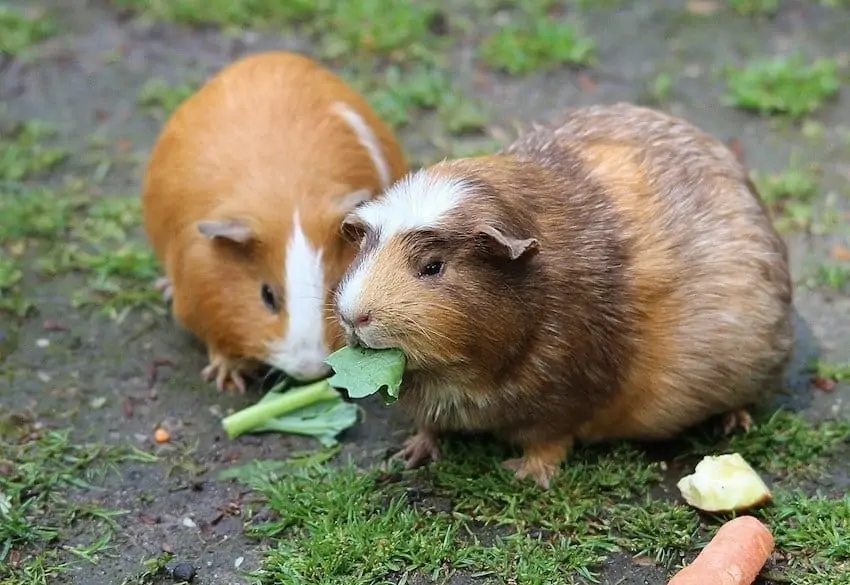
Guinea Pigs are sweet, affectionate animals that are relatively easy to care for. Many seniors may appreciate how soft these animals are, and the adorable chirps they make to communicate. Guinea pigs should be handled daily and can live in a cage or pen, but should also be allowed to roam free inside of the house.
When guinea pigs are housed in their cage, the cage should have at least two levels, giving them plenty of space to run and explore. It’s important that the bottom level of their enclosure is lined with bedding material like straw or hay for warmth.
They also need an area to eat or drink, such as a food bowl and water bottle. A guinea pig is an herbivore that should be fed fresh vegetables along with hay for the majority of their diet.
Guinea pigs are not appropriate for people with allergies due to their high dander levels. They’ll need to be handled gently by seniors, and the elderly owner will need to be capable of regularly cleaning the guinea pig’s cage at least once a week.
6. Rabbits
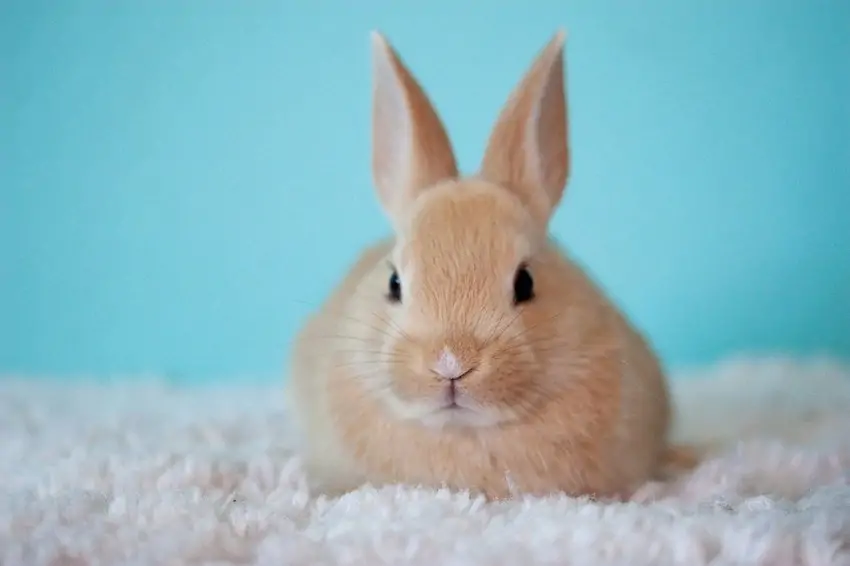
Rabbits are loving, cuddly animals that many seniors may enjoy. They require regular handling and should only spend a moderate amount of time in a pen or cage – a significant amount of time should be spent hopping around the house.
Some rabbits will not enjoy being picked up if they were not handled at a young age, so be sure to opt for a pet rabbit that has been socialized and handled frequently when they were young.
Rabbits are mainly herbivores and should be fed healthy vegetables, hay, fruits or high-quality pellets. They need a constant supply of water to drink and should have at least one bowl with fresh food in it present at all times.
Rabbits require regular grooming – their fur can mat down easily if they’re not brushed daily – and will require a litter box for their waste.
When it comes to housing, rabbits should generally be kept in an enclosure or pen with at least six square feet of space – the more room they have, the happier they’ll be! The bottom of their cage should be lined with bedding material like straw or hay for warmth. Rabbits require lots of exercise, so they should be let out to roam free in an enclosed area at least twice per day and given plenty of toys to play with.
Rabbits are not appropriate for people with allergies due to their high dander levels. They’re a moderate-maintenance pet for seniors who are looking to adopt an animal that won’t demand tons of attention, but they do require regular grooming, daily interaction, and plenty of space in their pen or enclosure.
7. Geckos
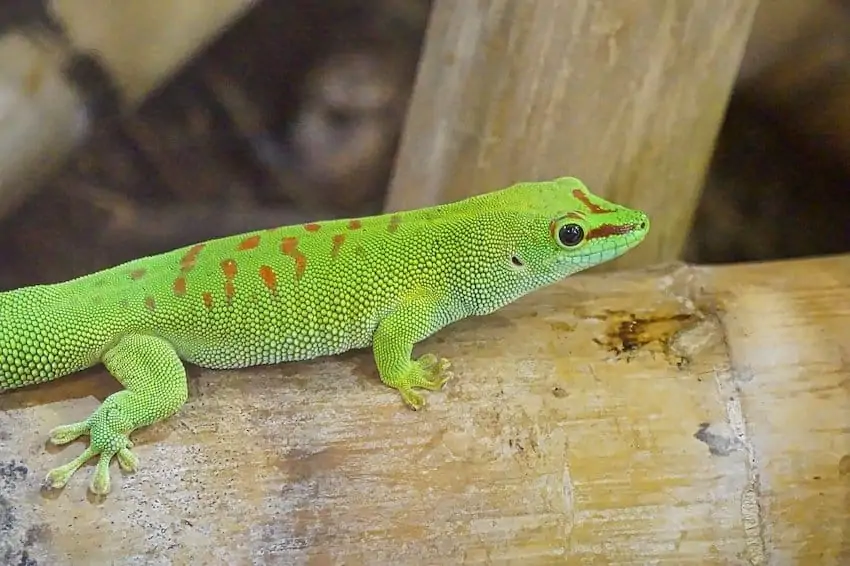
Geckos are low maintenance, nocturnal animals; they don’t require much interaction from the owner – as long as the animal has been born in captivity or acquired from a reputable breeder.
Geckos require little attention from their owners outside of feeding them a healthy diet of crickets every few days.
Geckos live to be about 15 years old and require a warm temperature, so they’re not appropriate for seniors who live in colder climates (unless you employ some kind of heat source).
The Drawbacks of Pets Ownership for Older Seniors
While having a pet at home can bring a multitude of benefits, there are downsides as well:
- Senior’s need to have enough money to afford food, adequate shelter, toys, and treats for a pet, in addition to veterinary care and grooming when required.
- Older people might not have the physical strength or stamina required for certain types of animals, such as dogs.
- Pets require regular care and upkeep – animals can’t take care of themselves! If a senior is forgetful or suffers from dementia, the pets can be put in serious danger.
Back-Up Care and Home for Pets of Seniors
Many seniors won’t be able to easily provide the full range of care some pets require. However, this doesn’t mean an elderly senior should miss out on the joys and companionship provided by pet ownership.
Instead, consider how a senior can access supplemental pet care, getting help from a more able-bodied individual when required.
Examples include:
- Hiring a neighborhood kid or friend to clean out a pet’s cage weekly
- Using a service like TaskRabbit to have someone come by and switch out an aquarium’s water tank
- Using services like Rover or Wag to ensure their dog gets walked daily
- Subscribing to Chewy deliveries for ongoing shipments of hay, bedding, food, toys, and treats to ensure an elderly owner has ongoing access to care items required for the pet.
For some older seniors, thought should be given to what will happen to the pet if the senior needs to enter a care facility that does not allow pets, or if the elderly individual passes away. Have a backup plan for who will take the pet.
Ideally, a friend or family member will volunteer to take in the pet if a senior is no longer able to care for the creature.
The best pets for seniors are ones that offer comfort, companionship, while remaining relatively low-maintenance. Seniors who are looking for a bigger responsibility and an incentive for daily exercise may want to consider a mature dog, while others may be happier with birds or a cat.
Have you or an elderly loved one had a beloved pet? Share your experience in the comments below!


